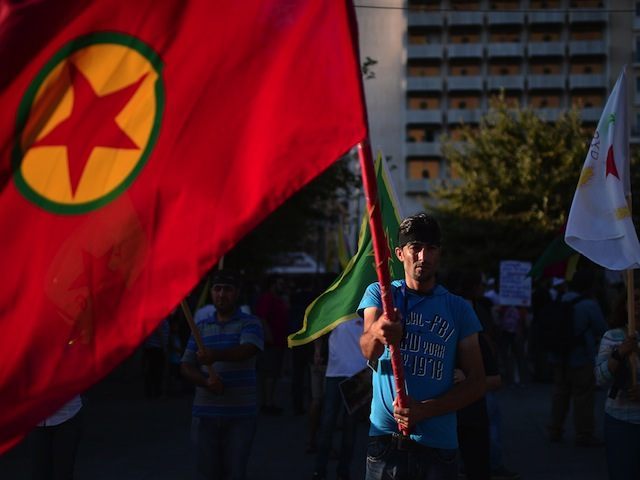In light of the PKK’s recent string of assassinations of police officers, it is unethical and naive to think that the US should unconditionally support any and all Kurdish entities as a counter-balance to radical Islamism.
A recent terror attack in the town of Suruç targeted a group of ultra-leftist Kurdish students who were intending to cross into Syria to help with the rebuilding efforts in Kobane. The suicide bomber was a Turkish IS operative. The PKK (The Kurdish Workers’ Party) accused the Turkish government of the attack and assassinated a soldier, two police officers, and three civilians in retaliation, and threatens to launch additional attacks.
The incident constitutes a terrorist organization protesting a terror attack by another terrorist organization by launching a terror attack. Since 1986, the PKK has murdered thousands of civilians with the deliberate agenda of forcing concessions from a weary public – the very premise of terrorism. The fact that the PKK (and its Syrian offshoot PYD) may be protecting the Kurds and the Yazidis from falling into IS’ hands does not negate the fact that they are terrorists. In fact, even in attemping to help Yazidis in Iraq, the PKK’s history precedes it, and the Kurdish government there has warned them not to stay. They are terrorists not because they want an independent Kurdistan, but because of their methodologies.
The Kurds absolutely have an inalienable right to use their language, live their culture, and self-determine their status as a people. But the problem is that some of the Kurdish population in Turkey have embraced terrorism as a political methodology, and want to gain the said independence through forcing concessions via terrorism. A comparison to the Palestinians can be made; they may have a right to a sovereign state, but they are not likely to get it anytime soon because their primary method of facilitating their sovereignty has been through using terrorism to force concessions.
It remains ideal to support an independent or an autonomous Kurdish region within Turkey, only when a majority of Turkey’s Kurds cease to call it resistance or national liberation to bomb buses or massacring entire villages.
The only legitimate Kurdish entity in the Middle East is the Kurdish Regional Government of Iraq, led by its president Masoud Barzani. The Iraqi Kurds did not embrace terrorism even in the face of Saddam Hussein’s atrocities, and they were able to have their quasi-sovereign state at the end because of their moral legitimacy.
Turkey bears responsibility for the human suffering caused by turning a blind eye to the flow of jihadis but, by embracing terrorism throughout its existence, the PKK and its militants in Syria forfeit any moral superiority whatsoever. The tragedies of the Kurds and the Palestinians should teach us that terrorism hurts the population that embraces it and derails its own cause more than it hurts the government or the population being targeted. National liberation or self-determination of a stateless people cannot and should not be achieved through terrorism.

COMMENTS
Please let us know if you're having issues with commenting.